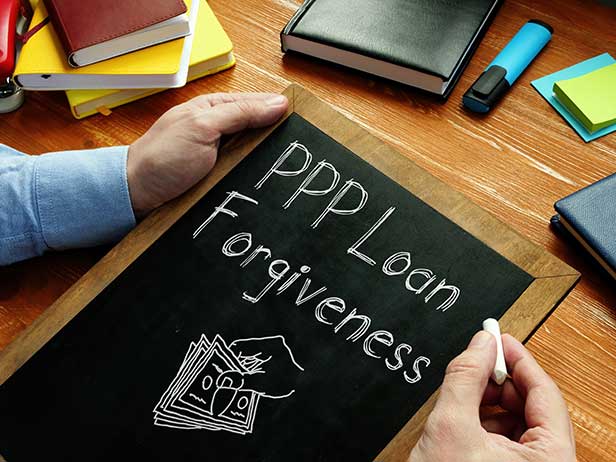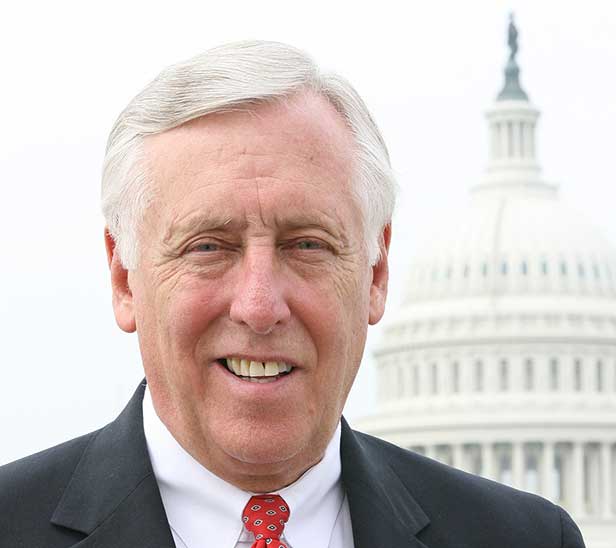News May 26, 2020
PPP Extension, Changes Likely to Come Soon
Still, demand for Paycheck Protection Program loans has dropped dramatically as business owners are confused about the terms.
Promotional products companies and businesses across industries that received loans from the Paycheck Protection Program could soon have more flexibility in how they use the funds – and more time in which to use them and, if necessary, pay them back.
On May 26, House Majority Leader Steny Hoyer said the House and the Senate will likely be able to speedily agree on legislation that would usher in the rule changes to the PPP, which the U.S. Small Business Administration oversees.

Currently, businesses must use the PPP money within eight weeks of receiving it in order to have the loans forgiven. However, the House is scheduled to vote on a bill on May 28 that would extend that forgiveness time period to 24 weeks or Dec. 31, whichever would come sooner.
The bill, which reportedly enjoys bipartisan support, would also stretch the time recipients have to repay the loan – should they not qualify for forgiveness – from the current two years to five years. Furthermore, the bill would nix a requirement that limits spending on business expenses to 25%. As written now, 75% must go to payroll.
Similarly, the Senate is considering a measure that would double the time PPP recipients would have to use the money and still have the loans forgiven from eight weeks to 16 weeks. The legislation would also extend the deadline to apply for a loan from June 30 to the end of the year.
While the measures each Congressional chamber is considering differ in certain specifics, they’re in principle trying to achieve the same thing, Hoyer said. “What we think is there is a general consensus – both House and the Senate – that the time frame that was set was too short, unfortunately,” Hoyer told reporters on May 26.

Steny Hoyer
Given that general consensus, Hoyer anticipates approval will soon be forthcoming. It’s even possible – should the House pass its bill on May 28 – that the Senate will vote on that measure next week.
Still, hurdles remain.
A Senate GOP aide told Bloomberg that action in the Senate is being delayed because some senators want to affix add-on provisions to the Senate bill; they could try to do the same thing to the House bill if it’s passed and rises to the Senate for a vote. That could complicate approvals.
There’s urgency for Congress to act quickly. The eight-week loan forgiveness time frame will expire at the end of this week and in early June for businesses that received PPP funding shortly after the program launched on April 3.
As Congress considers changes to the PPP, demand from small businesses for the loans has declined dramatically. Businesses eager for support amid the height of societal lockdown measures tied to the coronavirus wiped out the initial $349 billion round of PPP funding in 13 days – by April 16. Authorities approved a second $310 billion round of funding on April 27, but approximately $150 billion of that loan money remains untapped.
As Reuters reported, the drop in interest is due, in part, to business owners’ confusion over terms and apprehension about being on the hook for paying the loan back.
“Business owners first saw the program as a lifeline during the coronavirus crisis. They are now worried that confusing and changing rules may keep them from converting the money to a grant, meaning they will need to pay it back,” Reuters noted.
Other factors have also contributed to diminished interest. They include business owners being uncertain about what demand will be like from customers amid the coronavirus-impacted economy. There’s also the fact that some businesses have elected to use different stimulus programs instead of the PPP, with the Employee Retention Tax Credit being one such initiative.
Through May 23, the net amount of PPP loan approvals totaled $511.2 billion. That was down from $513.3 billion in loans processed through May 16. The reason for the reduction is that some companies have returned loan money. Meanwhile, as Reuters noted, some companies that continue to hold the funds are allowing the money to idle in their bank accounts – a result, in part, over confusion about the loan terms, potential payback and more.
“I think it’s a mixture of uncertainty and anxiety and fear, and the uncontrollable factor about employment and rehiring,” a lender who handles PPP loans told Reuters.
